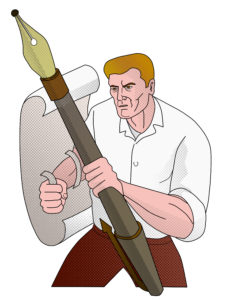Quick links, bringing you great articles on writing from all over the web.
I love anthologies as a way of finding new authors. Alex J. Cavanaugh discusses how anthologies can help writers and has tips to make your anthology experience successful. Anne R. Allen’s Blog… with Ruth Harris has the full details.
~ * ~
Anthologies: How They Can Advance Your Writing Career

by Alex J. Cavanaugh
Anthologies are an excellent way for a writer to break into publishing. They can also do a lot to expand the audience for your existing titles. Blog ninja and Master and Commander of the Insecure Writer’s Support Group, Alex J. Cavanaugh, has edited several anthologies, and gives us the skinny on how they can help your career.
Anthologies offer something for everyone – the authors, the readers, and the organizing team.
The Insecure Writer’s Support Group recently released its second anthology, Parallels: Felix Was Here. Previously, we’d put together The IWSG’s Guide to Publishing and Beyond.
Comprised of short essays from various IWSG members, the Guide was put together as free gift to our members and to any writer seeking assistance. The second anthology was the result of a yearly contest and offered the authors royalties. Both were a huge undertaking for the IWSG team to put together.
But the anthologies embody what the IWSG is all about – offering support and providing opportunities for writers at all levels to achieve their goal of being published. When you’re in an IWSG anthology, there’s a sense of family. All the winners become friends and offer support for each other. Watching that unfold is worth any amount of effort.
So, for anyone considering submitting to an anthology, putting together one, or even reading such a collection, I offer these tips and advantages.
~ * ~
If you liked this article, please share. If you have suggestions for further articles, articles you would like to submit, or just general comments, please contact me at paula@publetariat.com or leave a message below.







 In part 1 last week
In part 1 last week

 Do most Americans still read books?
Do most Americans still read books? 

